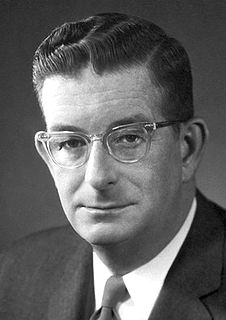A Quote by Marshall McLuhan
Historians and archaeologists will one day discover that the ads of our time are the richest and most faithful reflections that any society ever made of its entire range of activities.
Related Quotes
In a few hundred years, when the history of our time will be written from a long-term perspective, it is likely that the most important event historians will see is not technology, not the Internet, not e-commerce. It is an unprecedented change in the human condition. For the first time - literally - substantial and rapidly growing numbers of people have choices. For the first time, they will have to manage themselves. And society is totally unprepared for it.
Dying well is part of living well and one day our society will surely recognize that. But I suppose we'll only know that we've reached that promised land on the day that the President of the Voluntary Euthanasia Society begins his address to the Annual General Meeting with the words: 'Tremendous news for the society. It's been our most successful year ever. So successful, indeed, that we now have no members at all.
I am seized with an abiding fear regarding what these two instruments are doing to our society, our culture and our heritage. Our history will be what we make it. And if there are any historians about fifty or a hundred years from now, and there should be preserved the kinescopes for one week of all three networks, they will there find recorded in black and white, or color, evidence of decadence, escapism and insulation from the realities of the world in which we live.
Yet our interests, the interests of the Russian Federation, include the normalisation of relations with Japan, which is not at the bottom of the agenda. The whole range of what will be proposed for a solution, the entire range of matters related to the normalisation of our relations and what that would bring after normalisation, this is the whole range of issues to be discussed and decided, and those decisions should be of a practical nature.
Ever since the beginning of modern science, the best minds have recognized that "the range of acknowledged ignorance will grow with the advance of science." Unfortunately, the popular effect of this scientific advance has been a belief, seemingly shared by many scientists, that the range of our ignorance is steadily diminishing and that we can therefore aim at more comprehensive and deliberate control of all human activities. It is for this reason that those intoxicated by the advance of knowledge so often become the enemies of freedom.
Most academic historians accept that historians' own circumstances demand that they tell the story in a particular way, of course. While people wring their hands about 'revisionist' historians; on some level, the correction and amplification of various parts of the past is not 'revisionism' as it is simply the process of any historical writing.
Synthesis..., perhaps in greater measure than activities in any other area of organic chemistry, provides a measure of the condition and power of science. For synthetic undertakings are seldom if ever undertaken by chance, nor will the most painstaking, or inspired, purely observational activities suffice. Synthesis must always be carried out by plan.





































